You may have noticed the blog being a little more quiet than usual, and I want to share with you the reason for the lull in recipes, social media posts and overall activity. The past couple months have been eye-opening to me as I have felt a transformation in both my personal and professional life– an awakening related to body kindness, body image and intuitive eating. This post has been saved as a draft for weeks now and I keep going in and tweaking it because this will be the first time I’ve really opened up on the blog.
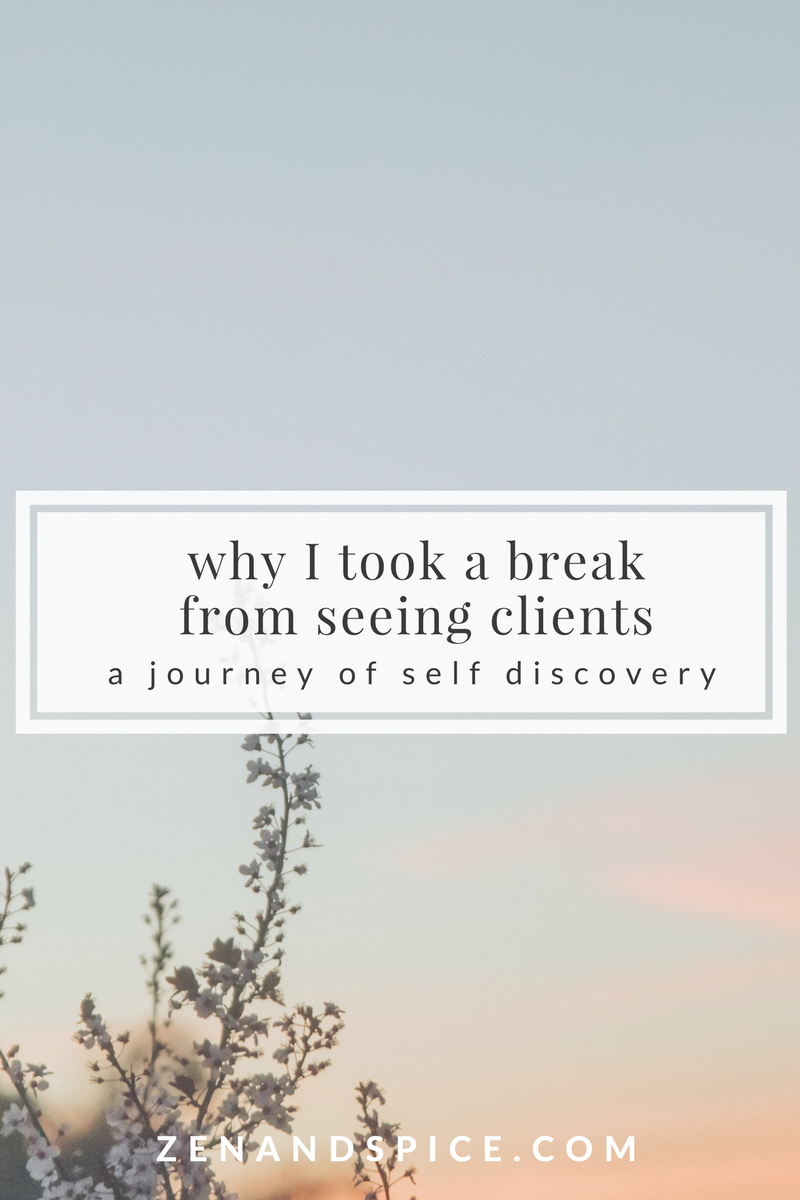
Let’s back up a bit. My first job out of my internship was an outpatient counseling position at a heart hospital, where I worked for about three years doing counseling with heart failure and cardio-pulmonary rehab patients. At first, I loved my job. How lucky for me, to get to work in outpatient dietetics, right out of my internship (this is rare). I hated clinical, so I did find this pretty lucky. The first year or two flew by quickly. Over time it begun to bother me that I was “stuck” to one way of counseling my patients. Low sodium. Low saturated fat. No trans fats. Calorie restriction. I did teach the concept of “clean eating”, where I preached that it wasn’t a diet, but rather a lifestyle change that could help my patients live a better life. However, only about 20% of my patients actually carried out what I taught, which was very frustrating. Looking back, I don’t blame them. Being told you have to change your lifestyle and eliminate your favorite foods is no fun at all.
In January of 2015, I enthusiastically begun my private practice on the side. I wanted freedom from the type of patients I saw at the hospital. My marketing strategy boasted clean eating. The first month, I had three clients (which was fantastic considering I was still working my full time job), and it continued to grow.
My marketing strategy seemed to attract only one type of client. Women, in their 20’s and 30’s, who wanted to lose 10-20 pounds. I saw these clients for their initial visit, which seemed to go extremely well– the clients were interested, enthusiastic, and motivated.
But none of them ever scheduled a follow up visit. I would email them friendly reminders, check-ins, etc to attempt to reingage, and I heard crickets.
Back then, I saw this as a failure. I could get clients in the door, do the initial counseling, and then *poof*, they’d disappear. What was I doing wrong? Did they not like me as a dietitian (or as a person?)? My self confidence as an RD deflated faster than a popped balloon.
After about a year of sporadic clients, with none of them scheduling follow ups, I thought: “Well, I must not be good at counseling. It’s just not my thing. I’m better at health promotion, cooking, recipe development, photography, artsy stuff.” My side business took on sponsored posts, cooking demos, etc, and I stopped seeing clients altogether.
In the middle of all of this frustration with retaining my clients, I stumbled upon the book Intuitive Eating by Evelyn Tribole. It completely opened my eyes. The concept that diets don’t work (even clean eating is considered a diet) — and that the problem is we’re angry at ourselves for overeating, our “lack of willpower”, for failing these diets over and over again. The problem isn’t us, the problem is diets along with their rules and regulations that stop us from listening to our bodies.
Anything that tells you what, when, where or why to eat is a diet.
I began to see that what I was promoting to my clients (and to my patients at the hospital) was nothing other than a regular ol’ diet. I immediately felt a ton of guilt, and I still do. But how could I blame myself? This is what we, as dietitians, are taught in school.
Not ONCE in my nutrition degree did intuitive eating or the health at every size concept come up. We spent years studying how to calculate the correct number of calories, macronutrients– grams of protein and carbs to lose weight, studying which foods had the largest nutritional bang for their buck. We had one class about counseling– but it was behavior change/weight loss counseling.
In my internship, I had to calculate calorie restriction plans for patients in the hospital. A 1500 calorie plan for patient X who “needed to lose weight”, according to their BMI. Patients would be flagged for nutrition counseling just for their BMI being over 25. We had weeks of rotations where we worked in weight loss clinics, bariatric surgery clinics, etc, where we promoted calorie reduction and increased expenditure with exercise.
And you know what we continued to see over and over again? These patients would keep coming back– they’d lose a little weight and then gain it all back plus more. Was it us, the dietitians, who failed them? Or was it the diet that we were promoting that failed?
I truly believe that most dietitians become dietitians because they foremost want to help people improve their quality of life. But what if what we’ve been taught, and what we promote, has done nothing other than harm our patients and clients? And, what if, we became dietitians because it was a way to camouflage our own disordered eating habits? Because we have our own body image issues, fat phobia, fears of being sick or fears of death?
I recently read this post by one of my favorite dietitian bloggers, Kylie from ImmaEatThat: Creating a bubble of non-diet coziness. This is where I discovered the Food Psych Podcast by Christy Harrison.

I must have listened to three of them in one day. I’ve knocked out over fifteen of them since, and let me tell you, I have never listened to something so eye opening and life changing. I find myself shouting “YES! Thank you!!” as I listen along.
I’ve been immersing myself with this podcast, and others such as Love, Food by Julie Dillon (one of my fav Food Psych guests). Rebecca Scritchfield, another Food Psych guest, wrote a book called Body Kindness, which I’m in the middle of reading. My plans are to re-read Intuitive Eating and Health at Every Size, and study them intently.
There’s a few amazing bloggers out there who talk about these concepts frequently, and recently, they’ve had some great posts that have continued my newfound fascination:
You Don’t Fail the Diet, The Diet Fails You
I Have Been Changed for Good
On Feeding Your Soul
Being Bloated is a Side Effect of Being Human
Fullness vs. Satisfaction
Being a Competent Eater
There’s this strange feeling inside me that I’ve finally found the reason why my clients didn’t come back after our initial visit. The reason behind my own disordered eating habits and the disordered habits I’ve pushed onto family members and close friends.
You’re going to see a shift happen in this blog of mine. I’ll keep posting my favorite recipes, of foods I actually love to eat. I promise to never post a recipe just because it contains “healthy” foods. I promise to keep it completely, and totally real. Of the struggles of a dietitian just discovering intuitive eating and figuring out her own disordered eating habits. I’ll share details of my own journey towards loving my body, completely and totally just the way it is.
To my family, friends, clients and readers: If I have ever made you feel guilty, anxious, or pressured to eat or exercise a certain way, I sincerely apologize. It was never my intention to push diet mindset behaviors on you. My honest and true intention was (and still is) to help people live happier lives– and now I know that living a happy life does not mean reaching a “goal weight”. It’s loving and accepting whatever body shape you have and treating yourself with respect. We don’t deserve to shrink ourselves down to these little, unrealistic body shapes. And we don’t have to shrink our voices either. We have to stand up and stare diet culture right in the face.
And when it comes to seeing clients again, I pledge to only do so when I have found my own peace with food. You’ve got to put your oxygen mask on first before helping others.

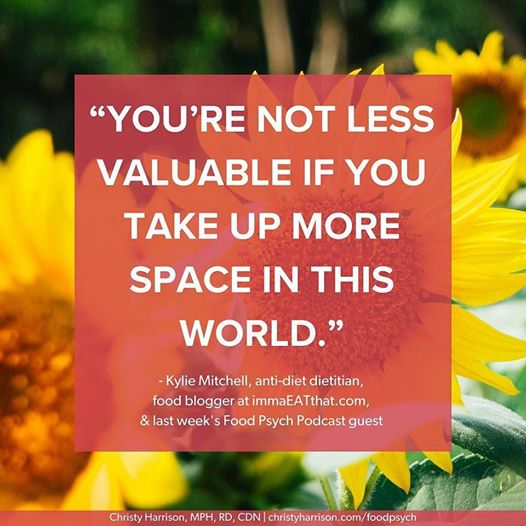
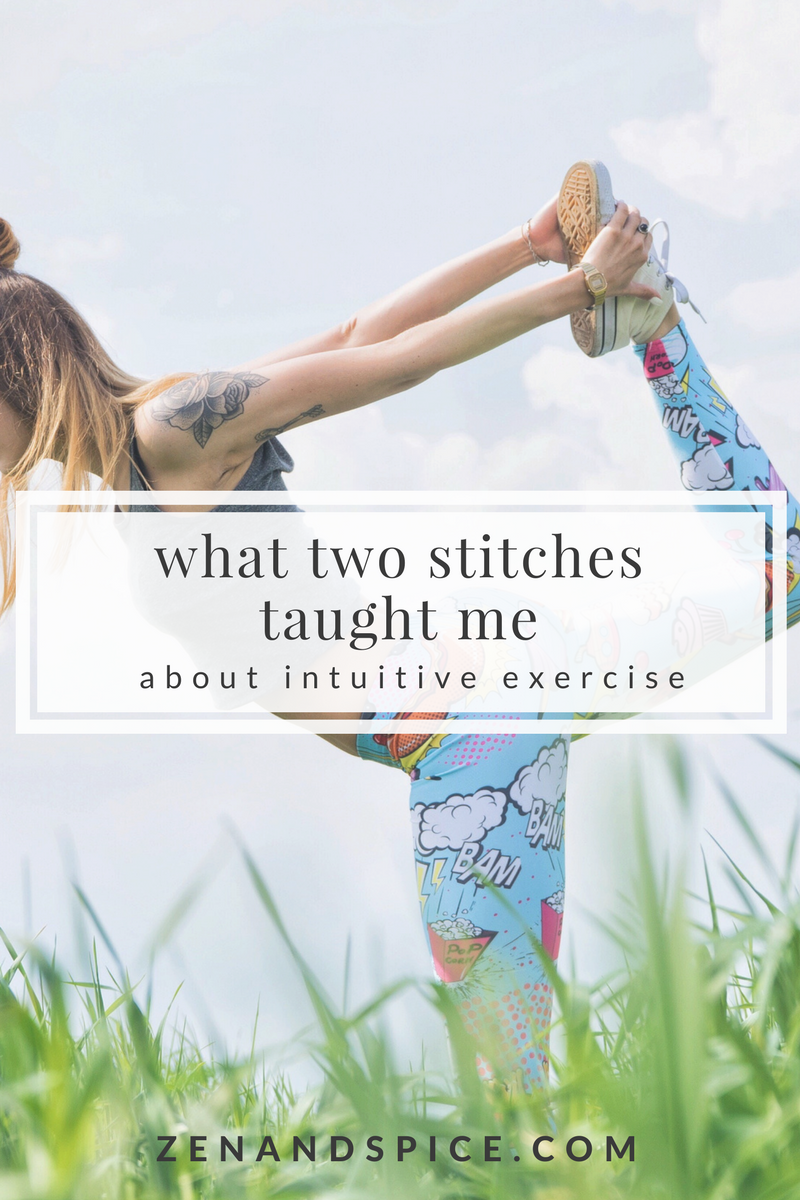

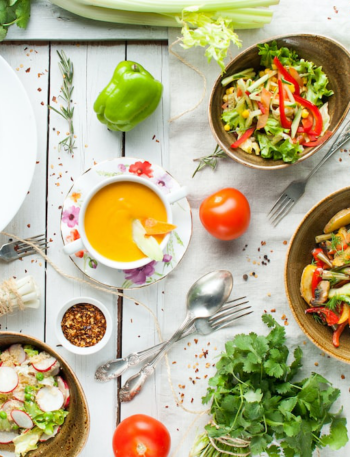
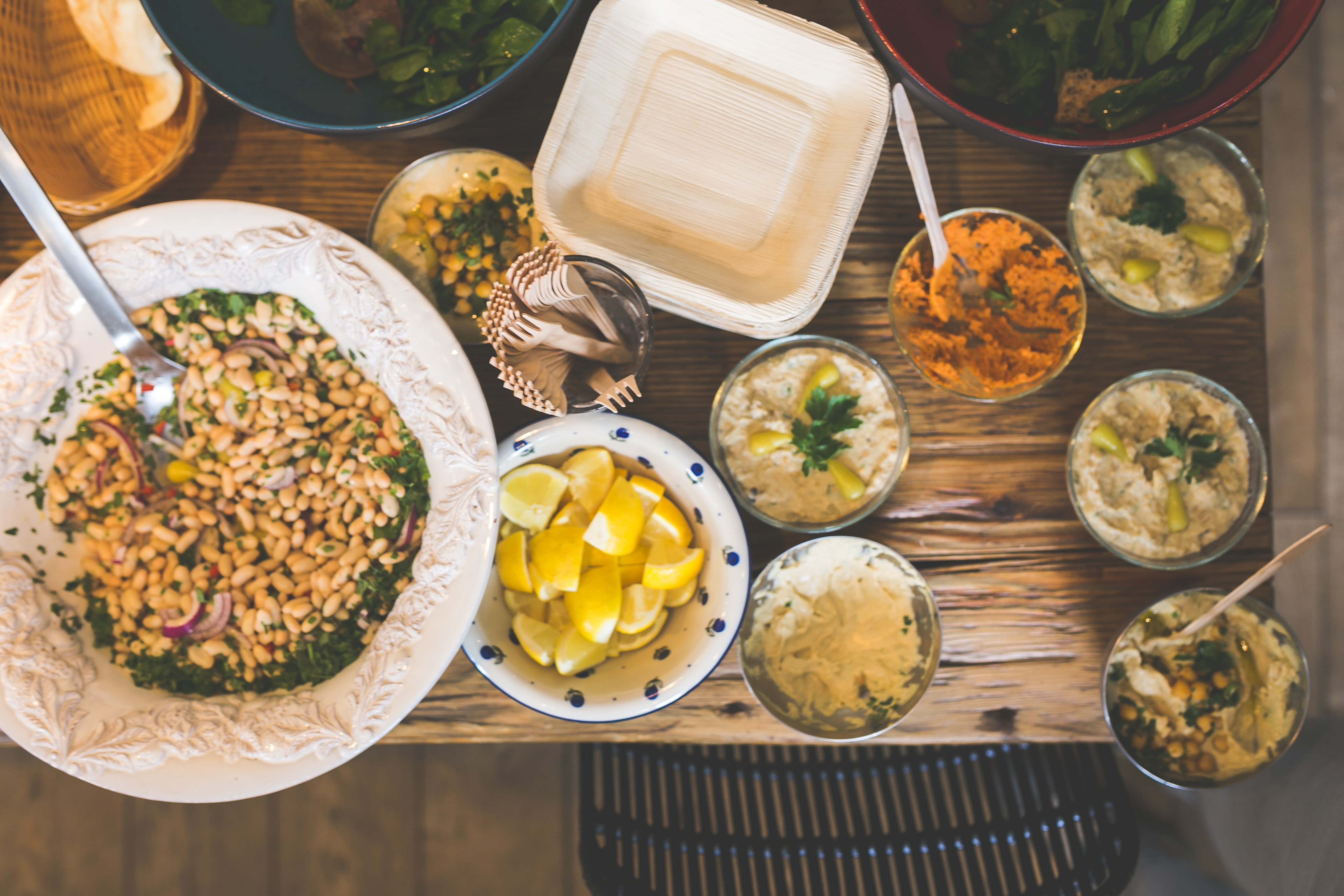
Great post, Emily.Thanks for your honesty and dedication. I truly see a shift in our profession, moving toward this realization and finding a “better way”. I’m in the process of becoming a Certified Intuitive Eating Counselor, and I highly suggest looking into that if you’re loving all of the IE/Food Psych stuff. Keep it coming! :)
Oh and PS. I agree on the lack of IE/HAES concepts in the dietetic internship. I make sure to talk to ALL interns I see now about these concepts!
Thanks for reading, Kim! I am actually half way through becoming an IE certified counselor! I just registered for the May supervision sessions. So excited for that certification and I hope I can use it to really help people :)
This is so powerful! Thanks for sharing! I too look back at my dietetics program and wish that it wasn’t so numbers oriented, just as you’d said. I had a (favorite) teacher straight-up say that a calorie deficit is the only important aspect for weight loss. You could only eat potato chips and still lose weight if you’re eating a deficit. While this may be true to some people, this kind of language tells us that weight loss is what’s important, regardless of the means of getting there. But, what research shows, and what we believe, is it’s about nourishing ourselves. Nourishing our minds by taking our mental health seriously and nourishing our bodies by eating foods that allow our bodies to work that also aren’t miserable for us. You’re going to learn a lot that will directly impact the people you will work with in the future. That’s amazing!
Thanks for reading. I can’t believe your teacher said that — but now that I remember, we learned SO MUCH about all the different “diets” but never about IE/HAES. So sad. We need a serious revolution in our undergrad programs, lol. And YES to the nourishing our minds == I feel like that should come first, always. There is not enough focus on mental health in our country.
Love this!
I loved everything about this post. It is truly refreshing to read something so real. I hope you are well!
Thanks, Hillary! I’m glad you found it refreshing. :) love seeing pictures of your adorable baby on FB!
What a great and enlightening article. Thanks for sharing.
This is a very reassuring message. I already feel much better about my body which has always wanted to stay this size no matter how much I tortured it with “diets”. I think your grandpa is an has been an intuitive eater for many many years. He never worries about it, he just seems to know what is a healthy way to eat. You are doing very well in your career climb!
I’ve always thought of Grandpa as the perfect model of intuitive eating. He always knows just how much food his body needs (and how much red wine it needs)… LOL!
This is wonderful! Thank you for opening up and being vulnerable and honest. What you mentioned is part of the reason why I didn’t go on to do my dietetic internship and get my RD license. I saw the way the dietetic internships work as a backwards thinking to what I really felt in my heart was right when it came to intuitive eating. And at the time I was even struggling with my own disordered eating – so I’m really glad I decided not to pursue my RD. It might have made my disordered eating worse. I do think we’re starting to shift towards accepting nutrition as a much much more flexible study and people’s weights and diets as acceptable – not having to restrict them to a certain number of calories and such. But we have a long way to go.
I TOTALLY see where you’re coming from. I’ve always hated that the word “diet” is in the name, so unfortunate. But really, that’s what dietitians learn in schools/internships: diets. In all honesty, my internship and my work afterwards did contribute to my disordered eating. And I agree– I hope the shift towards more flexible nutrition/weight friendly world happens sooner than later!!
YES! Emily you hit the nail on the reading this post I was so immersed in it because you are absolutely right! I remember a discussion with our fellow peers in undergrad about the word: orthorexia before it was paired with obsessive compulsive disorder. I felt it was never discussed how our studies followed this pattern to an extent. I wish we would have learned more about eating mindfully and taking time to have self awareness in our relationship with food. A larger emphasis on our mind & food, if you will.
I love that you are sharing this because it is a huge part of growing professionally. I can see where you heart sits and why you became a dietitian in the first place. Thank you for sharing all of this! I am looking forward to reading your journey!
So great to hear from you, Andrea! :) Thanks for reading and I’m glad you connected with it. Our studies as nutrition students totally line up with orthorexia, and it’s strange to think about that afterwards. I don’t remember learning anything about intuitive eating in school — maybe you do?– but I didn’t hear about it until I had already been a dietitian for 3 years lol!
Great article. Honesty and authenticity allow others to be vulnerable too :)
I love this post! Thank you for sharing. I’ve been so inspired over the past couple of months since learning more about HAES and IE. I’m confident our profession is moving in a positive direction and it’s RDs like you sharing your story that’s paving the way!!
im saying YES. YES. and YES to so many of these esp when all i see if obese (per BMI) patients in an inpatient setting. i would love to explore this and discuss more about this concept face to face…i hope dietetics programs will evolve and equip future RDs with newer approaches,
Such a great post Emily! I am 100% where you are right now! I’ve had similar experiences with clients and am seeing more and more why intuitive eating makes so much more sense. I really don’t know why we aren’t taught more about this in our schooling but am hopeful that things will change for future RDs!
[…] Get Healthy for Instagram, Do It For You via Andie Mitchell Why I Took a Break from Seeing Clients via Zen & Spice High Fat Diet for Endurance Athletes via Run to the Finish The Pinterest […]
Thanks for sharing your journey. I finish my dietetic internship this week, and like you I never learned about IE or HAES in school or in my internship. I am so grateful to have discovered these things on my own so that I can start my career walking on that path.